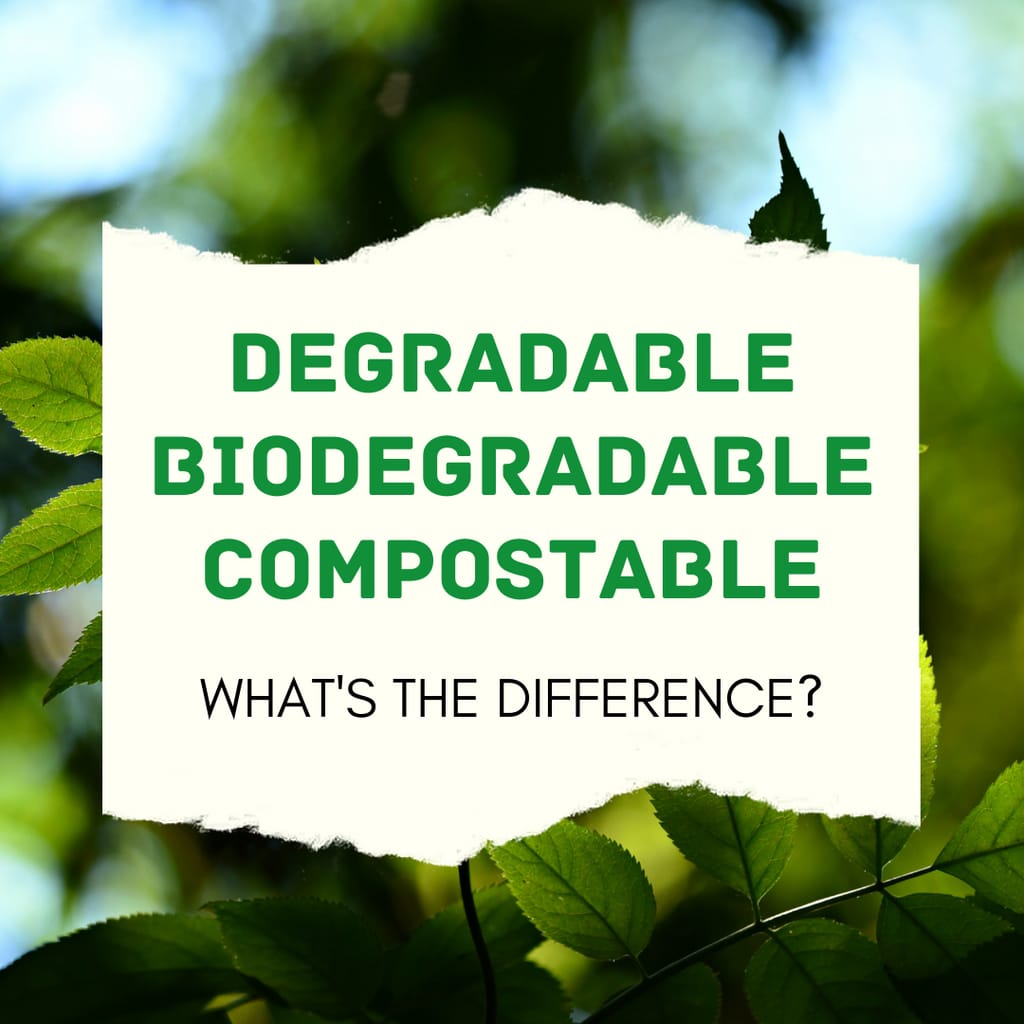
The age-old debate! Here we explain what the terms ‘degradable’, ‘biodegradable’ and ‘compostable’ actually mean, and which, from an environmental point of view, is better for the planet…
Degradable
Degradable means that the material will break down through chemical reactions. This is something everything is capable of given enough time. The term ‘degradable’ should not be used to promote the environmental benefits of an object as many materials which do degrade are extremely harmful to the planet. Plastic for example is fully degradable, if given a few hundred or even thousands of years a plastic bottle will degrade into micro-plastics, which will contaminate the seas and land, and eventually end up in the food chain, harming wildlife.
So, if you see a plastic water bottle advertised as eco friendly because it is fully ‘degradable’, then be aware that this may well be a greenwashing technique!
Biodegradable
Biodegradable means that the object will break down into natural materials through the work of micro-organisms. Biodegradation can be a long process, and occasionally can release greenhouse gases which are harmful to our planet. But an item which is biodegradable is definitely better for the environment than something which is not!
Compostable
Compostable means that an organic material can be turned into nutritious fertiliser for plants to grow. It is a much faster process than biodegradation but can require very specific conditions in order to work successfully. Some items which are compostable are only compostable in specific conditions in industrial composting facilities. These items can include compostable bioplastic which should not be thrown on your compost heap in the back garden or in your food waste bin! Compostable bioplastic must be taken to specific facilities t be disposed of appropriately.
To conclude…
In conclusion, degradable is a very vague and generalised statement when applied to a product, as most materials do indeed degrade if given enough time. It is safe to assume that this term may well be being used to suggest an environmental benefit to a product which has none; as you can be sure that if the product did honestly have environmental benefits, then the company which produces them would have no problem in listing these benefits in detail.
Biodegradable and compostable are both the most environmentally friendly options available. Just be aware that something which is branded as biodegradable and compostable might not be suitable for home composting, and might have to be taken to an industrial composting facility!
